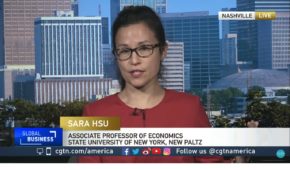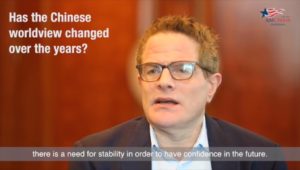 |
| Matthew Brennan |
China's most popular short-messages platform WeChat has at last included Snapchat/Instagram style stories. Long overdue, says Tencent and
WeChat specialist Matthew Brennan at his website. He tells how it works, and why - if very late - this is a smart move.
Matthew Brennan:
WeChat is coming pretty late to the stories game. For much of 2017-18, we’ve seen them totally focused on building up the mini-programs platform, which might explain some of the lateness. Also worth noting that adding stories into the complex WeChat experience in a meaningful and impactful way without disruption of the existing ecosystem balance is tricky and not without risk.
But the real reason why we haven’t seen WeChat embrace moments to date is likely to be founder Alan Zhang’s insistence on positioning WeChat as a tool for productively and efficiency rather than one that tries to keep users coming back to waste time.
Yet it’s likely that the pressure from Tencent head office to leverage WeChat to fight against Bytedance and their flagship short video platform Douyin (TikTok) is proving too much. With WeChat 7.0 we’ve finally seen WeChat make an indirect but bold move into short video.
Overall I’m pretty positive on how they’ve adapted the stories format to WeChat with this new update. I expect this feature to have a significant impact on WeChat usage habits, increasing stickiness and time spent in the app and negatively impacting consumption of other forms of short video in the China market. There will probably be some degree of cannibalization to traffic on the moments newsfeed also.
Stories have proven to be an immersive and engaging format across many different apps. The ephemeral nature of the format (24 hrs and they disappear) naturally drives users to return. The original innovation came from SnapChat who Tencent previously looked at acquiring and now own 17% of parent company Snap.
The most important entry point for traffic into this new feature might be groups and 1on1 conversations, not the newsfeed (Interestingly Facebook also introduced stories into Facebook groups this month). Messaging is traditionally an inhospitable environment for monetization. From a platform owner’s perspective, it’s not simple to monetize chat conversations, you can’t put adverts in there without seriously disrupting the user experience.
Tencent have done well with cracking this tough nut, firstly using lucky money in chat conversations as a way to kick-start WeChat Pay and secondly with sharing of mini-programs in groups as a way to foster e-commerce (e.g. Pinduoduo). Stories could be a third way to leverage the huge traffic of chat conversations as they can be monetized with ads and full-screen auto-play video ads at that; no wonder Facebook is trying to stuff stories everywhere they can.
Tencent is conservative with ad inventory, so I expect it will be quite some time before we see ads in WeChat Stories (if ever), but certainly the potential is there for them to turn on the taps if need be. In the short to mid-term, the primary benefit will be increased stickiness and engagement mostly at the expense of competitors.
Tencent must know that chat conversations are the real key to both WeChat traffic and monetization. They might be reluctant to place more pressure on the newsfeed where traffic has been falling or official accounts that have also seen declines in page views. Chat conversations have incredibly high value to users and unlike in newsfeeds, Tencent’s position is highly resilient to competition.
More at the ChinaChannel.
Matthew Brennan is a speaker at the China Speakers Bureau. Do you need him at your meeting or conference? Do get in touch or fill in our speakers' request form.
Are you looking for more internet experts at the China Speakers Bureau? Do check out this list.


















